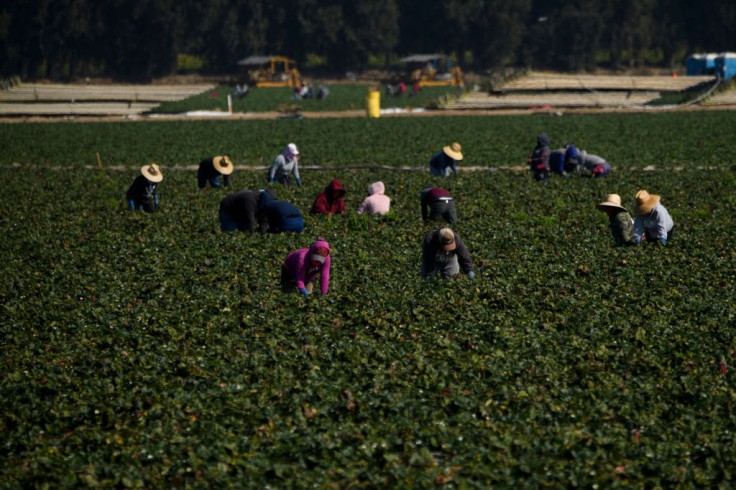
Parents who work in a specific industry in the U.S. are set to receive an extra $600 stimulus check from the Department of Agriculture (USDA) as part of its federal grant under the Farm and Food Workers Relief program.
The USDA will disperse over $680 million in funds to families of meatpacking workers, farmers, and grocery store workers who have been deemed indispensable during this pandemic.
U.S. Agriculture Secretary Tom Vilsack said the $600 stimulus check should help these workers cover the cost of their expenses related to personal protective equipment, vaccination, care for children and other dependents, as well as lost wages during the lockdowns. Vilsack said that eligible workers would not need to show any receipts to prove they are qualified to receive the stimulus check payment.
"We recognize that our farmworkers, meatpacking workers, and grocery workers overcame unprecedented challenges and took on significant personal risk to ensure Americans could feed and sustain their families throughout the pandemic," the secretary said. "They deserve recognition for their resilience."
How to Get the $600 Stimulus Check
Unlike the previous stimulus check payments, which were disbursed directly to the taxpayers' bank accounts through the IRS, the additional $600 will come from state agencies, non-profit organizations, or tribal community governments. The secretary said they will still determine which agencies to course the payments through, but priority will be given to the vulnerable and disadvantaged, such as the migrant workers. The USDA will open the applications for the grants this fall.
Marc Perrone, the United Food and Commercial Workers Union (UFCW) president, said that workers in the meatpacking industry deserve the extra stimulus check payments, especially after thousands of staff went through some of the deadliest outbreaks since the pandemic started. Around 80 percent of meatpackers in the beef and pork industry and 33 percent of workers in the poultry industry had COVID-19.
This affected not just their health but also their families and co-workers. Early in the pandemic, clusters of cases involving over 600 workers forced half of the food and agriculture industry in South Dakota to shut down. In Colorado and Iowa, meatpacking plants also temporarily closed due to the virus infection.
Essential workers in the food and agriculture industry are some of the low-income earners in America. Labor leaders have been calling on the government to appropriate money to boost the frontline worker payments.
States Distributing Bonuses, Too
States like Texas, Florida, Vermont, California, and Maryland have implemented their own stimulus bonuses and financial relief for frontline workers, teachers, and low-income earners. The additional payments are in the amount of $1,000 to $2,000, depending on the programs of these different local governments.
Families are also due to receive three more child care tax credits from the federal government for October, November, and December.
Meanwhile, an active petition for the government to distribute a $2,000 recurring stimulus check for families has gathered nearly three million signatures. However, lawmakers are still working out the funding for this package, which is estimated to cost $3.5 trillion.